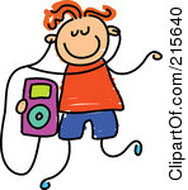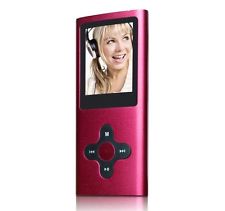Please do not think that audio books (formally books-on-tape, but now it's all electronic) are ONLY for students that struggle in reading. Audio books can be very beneficial to nearly all students. Over the past 9 years, or so, I have worked hard to record, and create, a huge selection of books on audio books. Please read the article below by Dr. Neuman to learn about the many benefits of audio books/books-on-tape! Thank you!!
The Literacy Benefits of Listening
Use audio books to bring life and depth to your child’s reading experience.
By Susan B. Neuman, PhD
I recently met a mom whose 4-year-old son loves to listen to audio
books at preschool. She wondered whether these books on tape will help build his
reading skills, and what he can learn from them.
Children take great pleasure in listening to stories, and there are some terrific books on tape
available at bookstores and most public libraries [and in Mrs. Brooks' classroom].
You'll find that these books not only provide you with an occasional break from reading (and
rereading the same stories again and again); they also enrich your child's
multi-sensory experiences with books.
Hearing a book read on tape helps her see how the words on the page can come alive in a fluid, expressive way. It helps her focus on the sounds of words read without interruption and
provides a model of fluent reading. Audio books also give her an important introduction to listening — a skill that she must master in order to learn to read.
Many books on tape have interesting sound effects, music, and multiple narrators that are especially motivating and fun for young children. Shel Silverstein's recordings of the poems in his delightful book Where the Sidewalk Ends are perfect examples. With his baritone voice, and the accompanying playful music and sounds, he demonstrates the deep pleasure that books can provide to children of all ages, serving as a stepping stone to every other kind of reading experience.
Narrators on tape tend to embellish their storytelling with silly voices and dramatic
enhancements. They emphasize reading as a source of pleasure rather than a
skill, and make children eager to learn how to read. Beyond their sheer
enjoyment of audio books, children also develop a sense of narrative structure
and understanding of language. Stories on tape help them to grasp the rich and
various ways in which language distills and conveys meaning. In addition,
exposing your child to a range of narrators and their different styles of
reading will deepen his grasp of the reading process.
Teachers often set up a listening center so that two to four children can listen to
the same book at the same time. This can provide a wonderful opportunity for children
to hear their favorite books read aloud again and again. The more they listen, the
greater the likelihood that they will learn new vocabulary words. And, when
listening with a special friend, the opportunities for playing creatively and
acting out parts of the story are endless.
You don't have to spend a fortune for books on tape to use in your own home.
Today, many libraries have a rich collection of audio books. For those you may
want to keep, library sales and used bookstores offer some great bargains.
Take books along on car trips, or while you're in the waiting room at the dentist's office.
I think you'll find that these books are truly the gift that keeps on giving.
***Parents - Please purchase an Mp3 Player for your child so s/he will be able to read audiobooks. Check "ebay" for the very best deals on Eclipse brand Mp3 players. I have converted my books-on-tape to Mp3 players and have many titles, and series, that I can load onto your child's Mp3 player. For those students that don't have an Mp3 player, I can loan them an Mp3 player until they get their own, but I don't want this to be a permanent situation, so please plan to get one as soon as you are able.
My Mp3 players and my classroom library books are NOT allowed to go home, but if your child has their own Mp3 player, then your child can check out a book from the school library and take them both home. I can also load multiple book titles on Mp3 players if your child wants to read more than one book over the weekend, or during break.
The Literacy Benefits of Listening
Use audio books to bring life and depth to your child’s reading experience.
By Susan B. Neuman, PhD
I recently met a mom whose 4-year-old son loves to listen to audio
books at preschool. She wondered whether these books on tape will help build his
reading skills, and what he can learn from them.
Children take great pleasure in listening to stories, and there are some terrific books on tape
available at bookstores and most public libraries [and in Mrs. Brooks' classroom].
You'll find that these books not only provide you with an occasional break from reading (and
rereading the same stories again and again); they also enrich your child's
multi-sensory experiences with books.
Hearing a book read on tape helps her see how the words on the page can come alive in a fluid, expressive way. It helps her focus on the sounds of words read without interruption and
provides a model of fluent reading. Audio books also give her an important introduction to listening — a skill that she must master in order to learn to read.
Many books on tape have interesting sound effects, music, and multiple narrators that are especially motivating and fun for young children. Shel Silverstein's recordings of the poems in his delightful book Where the Sidewalk Ends are perfect examples. With his baritone voice, and the accompanying playful music and sounds, he demonstrates the deep pleasure that books can provide to children of all ages, serving as a stepping stone to every other kind of reading experience.
Narrators on tape tend to embellish their storytelling with silly voices and dramatic
enhancements. They emphasize reading as a source of pleasure rather than a
skill, and make children eager to learn how to read. Beyond their sheer
enjoyment of audio books, children also develop a sense of narrative structure
and understanding of language. Stories on tape help them to grasp the rich and
various ways in which language distills and conveys meaning. In addition,
exposing your child to a range of narrators and their different styles of
reading will deepen his grasp of the reading process.
Teachers often set up a listening center so that two to four children can listen to
the same book at the same time. This can provide a wonderful opportunity for children
to hear their favorite books read aloud again and again. The more they listen, the
greater the likelihood that they will learn new vocabulary words. And, when
listening with a special friend, the opportunities for playing creatively and
acting out parts of the story are endless.
You don't have to spend a fortune for books on tape to use in your own home.
Today, many libraries have a rich collection of audio books. For those you may
want to keep, library sales and used bookstores offer some great bargains.
Take books along on car trips, or while you're in the waiting room at the dentist's office.
I think you'll find that these books are truly the gift that keeps on giving.
***Parents - Please purchase an Mp3 Player for your child so s/he will be able to read audiobooks. Check "ebay" for the very best deals on Eclipse brand Mp3 players. I have converted my books-on-tape to Mp3 players and have many titles, and series, that I can load onto your child's Mp3 player. For those students that don't have an Mp3 player, I can loan them an Mp3 player until they get their own, but I don't want this to be a permanent situation, so please plan to get one as soon as you are able.
My Mp3 players and my classroom library books are NOT allowed to go home, but if your child has their own Mp3 player, then your child can check out a book from the school library and take them both home. I can also load multiple book titles on Mp3 players if your child wants to read more than one book over the weekend, or during break.


